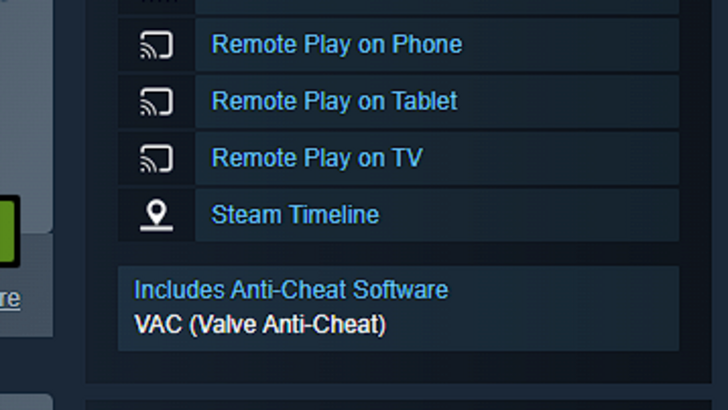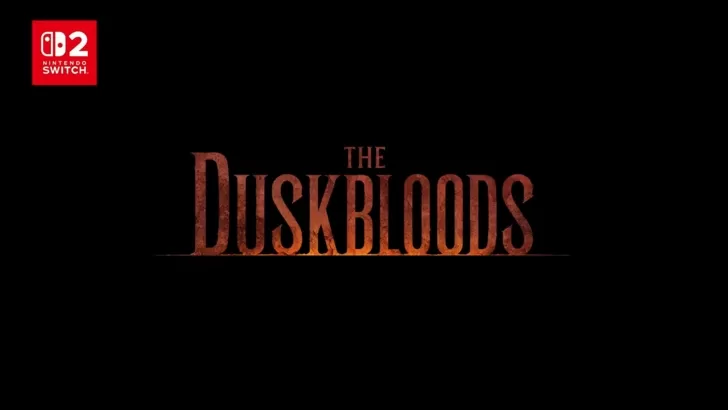Steam's New Anti-Cheat Disclosure Feature Sparks Debate
 Steam has mandated that all developers declare whether their games utilize kernel-mode anti-cheat, a system that has generated significant controversy. This article explores Steam's platform update and the ongoing discussion surrounding kernel-mode anti-cheat.
Steam has mandated that all developers declare whether their games utilize kernel-mode anti-cheat, a system that has generated significant controversy. This article explores Steam's platform update and the ongoing discussion surrounding kernel-mode anti-cheat.
Steam Introduces Anti-Cheat Transparency Tool
 Valve recently announced a new feature on the Steam News Hub, requiring developers to disclose their game's use of anti-cheat software. This feature, accessible via the Steamworks API's "Edit Store Page" section, allows developers to specify their anti-cheat implementation.
Valve recently announced a new feature on the Steam News Hub, requiring developers to disclose their game's use of anti-cheat software. This feature, accessible via the Steamworks API's "Edit Store Page" section, allows developers to specify their anti-cheat implementation.
While disclosure for non-kernel-based anti-cheat remains optional, the mandatory declaration for kernel-mode anti-cheat reflects growing community concerns about its potential intrusiveness.
 Kernel-mode anti-cheat, which directly examines processes on a player's system to detect malicious activity, has been a point of contention. Unlike traditional methods that analyze in-game behavior, kernel-mode solutions access low-level system data, raising concerns about performance, security, and privacy.
Kernel-mode anti-cheat, which directly examines processes on a player's system to detect malicious activity, has been a point of contention. Unlike traditional methods that analyze in-game behavior, kernel-mode solutions access low-level system data, raising concerns about performance, security, and privacy.
This update appears to be a direct response to feedback from both developers and players. Developers sought clearer communication methods, while players demanded more transparency regarding anti-cheat services and associated software installations.
 Valve's official Steamworks blog post stated, "We’ve heard from developers seeking better ways to share anti-cheat information. Simultaneously, players have requested more transparency on anti-cheat services and additional software installations."
Valve's official Steamworks blog post stated, "We’ve heard from developers seeking better ways to share anti-cheat information. Simultaneously, players have requested more transparency on anti-cheat services and additional software installations."
This change improves developer communication and provides players with greater insight into a game's software practices.
Mixed Reactions to the New Feature
 Launched on October 31, 2024, at 3:09 a.m. CST, the update is already live. Counter-Strike 2's Steam page now prominently displays its use of Valve Anti-Cheat (VAC).
Launched on October 31, 2024, at 3:09 a.m. CST, the update is already live. Counter-Strike 2's Steam page now prominently displays its use of Valve Anti-Cheat (VAC).
While many users applaud Valve's "pro-consumer" approach, criticism remains. Some users pointed out grammatical errors and awkward wording, particularly the use of "old" to describe games that may update their information.
 Practical questions regarding language translation and the definition of "client-side kernel-mode" anti-cheat, exemplified by PunkBuster, have also been raised. The inherent concerns surrounding the invasiveness of kernel-mode anti-cheat continue to be debated.
Practical questions regarding language translation and the definition of "client-side kernel-mode" anti-cheat, exemplified by PunkBuster, have also been raised. The inherent concerns surrounding the invasiveness of kernel-mode anti-cheat continue to be debated.
Despite the initial mixed reception, Valve's commitment to pro-consumer platform changes is evident, highlighted by their transparency regarding recent California consumer protection legislation.
The long-term impact of this update on community apprehension towards kernel-mode anti-cheat remains uncertain.









